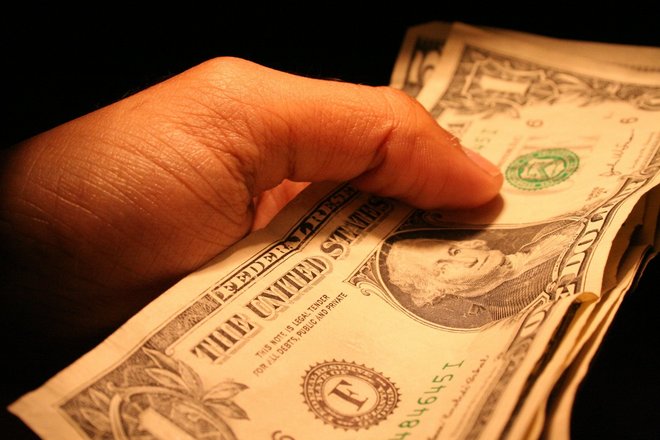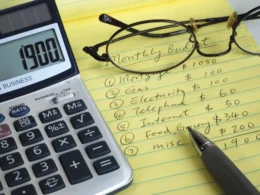Are you wondering if $3,000 is a lot of money? Maybe you’re trying to save up for a big purchase or you’re facing unexpected expenses. Whatever the reason, it’s natural to feel uncertain about the value of $3,000.
You might worry that it’s not enough to meet your needs, or that it’s too much to spend on something that you’re not sure is worth it. These concerns can be overwhelming and leave you feeling stuck.
But don’t worry – this article is here to help! We’ll explore the question of whether $3,000 is a lot of money and provide you with the information and tools you need to make an informed decision. We’ll discuss different scenarios where $3000 might be a significant amount, as well as situations where it might not be as much as you think.
I’m sure that after reading this article, you’ll have a better understanding of the value of $3000 and be better equipped to make financial decisions that are right for you.
So, if you’re ready to tackle the question of whether $3,000 is a lot of money, keep reading!
Is $3,000 a Lot of Money?
If you’re wondering whether $3000 is a lot of money, the answer is: it depends. There are several factors to consider when evaluating whether $3000 is a lot of money or not.
Factors to Consider
The first factor to consider is where you live. The cost of living varies greatly depending on where you reside. For example, living in New York City is more expensive than living in a smaller town in the Midwest. If you live in a high-cost-of-living area, $3000 a month may not go as far as it would in a lower-cost-of-living area.
Another factor to consider is your income. If you earn $3000 a month, that may be a lot of money to you if you’re used to earning less. On the other hand, if you earn significantly more than $3000 a month, $3000 may not seem like a lot of money.
Living Expenses
One way to evaluate whether $3000 is a lot of money is to look at your living expenses. If your monthly living expenses are less than $3000, then $3000 may be a lot of money for you. However, if your monthly living expenses are more than $3000, then $3000 may not be enough to cover your needs.
Budgeting
Budgeting is an essential part of personal finance. If you’re trying to determine whether $3000 is a lot of money, it’s important to create a budget. A budget will help you see how much money you have coming in and going out each month. It will also help you identify areas where you can cut back on expenses.
Investing
Investing is another factor to consider when evaluating whether $3000 is a lot of money. If you invest $3000 in the stock market, for example, you could potentially earn a return on your investment. However, investing also comes with risks, and there’s no guarantee that you’ll make money.
Conclusion
In conclusion, whether $3000 is a lot of money depends on several factors, including where you live, your income, your living expenses, and your financial goals. It’s important to create a budget and evaluate your expenses to determine whether $3000 is enough to cover your needs and wants. If you have disposable income after covering your needs, you may want to consider investing in a high-yield savings account, money market account, or investment portfolio to help grow your wealth over time.
Factors to Consider
When determining whether $3000 is a lot of money, there are several factors to consider. These include your geographic location, income level, and expenses.
Geographic Location
Where you live can greatly impact whether $3000 is a lot of money. For example, if you live in a high cost of living area like New York City, $3000 may not go as far as it would in a less expensive area. According to data from CNBC, a family of four in New York City needs an average of $98,722 per year to live comfortably. This translates to an average monthly expense of $8,227. In comparison, a family of four in a less expensive area like Kansas City, Missouri, needs an average of $62,139 per year to live comfortably, which translates to an average monthly expense of $5,178.
Income Level
Your income level is another important factor to consider when determining whether $3000 is a lot of money. If you have a high income and disposable income after paying for living expenses, $3000 may not seem like a lot of money. However, if you have a low income and struggle to pay for basic living expenses, $3000 may seem like a significant amount of money.
Expenses
Your expenses also play a crucial role in determining whether $3000 is a lot of money. If you have high living expenses, such as rent, utilities, and food, $3000 may not go as far as it would if you had lower expenses. According to data from CNBC, the average American household spends $61,224 per year. This translates to an average monthly expense of $5,102. If your expenses are significantly higher than this, $3000 may not be a lot of money.
In summary, whether $3000 is a lot of money depends on several factors, including your geographic location, income level, and expenses. Consider these factors when determining whether $3000 is a significant amount of money for you.
Living Expenses
When it comes to living on a budget of $3,000 a month, it’s important to be mindful of your expenses. Here are some key areas to consider:
Housing
Housing is likely to be your biggest expense, and it’s crucial to find a place that fits your budget. Depending on where you live, you may need to consider renting a smaller apartment or finding a roommate to split costs with. If you’re looking to buy a home, keep in mind that your monthly mortgage payment should ideally be no more than 28% of your monthly income.
Food
Food is another area where you can save money by being mindful of your spending. Plan your meals in advance, and buy groceries in bulk to save money. Look for sales and coupons, and consider shopping at discount stores or buying generic brands. Eating out can quickly add up, so limit your restaurant visits and opt for cooking at home instead.
Subscriptions
Subscription services like Netflix, Hulu, and Amazon Prime can be great for entertainment, but they can also add up quickly. Take a look at your monthly subscriptions and consider cutting back on ones you don’t use frequently. You can also look for free alternatives to some of your favorite services.
Credit Card Debt
If you have credit card debt, it’s important to make paying it off a priority. High-interest rates can quickly add up, making it difficult to get out of debt. Consider consolidating your debt or transferring balances to a card with a lower interest rate. Make a plan to pay off your debt as quickly as possible, and avoid adding any new charges to your cards.
By being mindful of your monthly budget and expenses, it’s possible to live comfortably on $3,000 a month. Keep track of your spending, and make adjustments as needed to ensure you’re living within your means.
Budgeting
When you have a monthly income of $3000, budgeting is crucial to make the most of your money. Here are some sub-sections that can help you create and maintain a budget.
Creating a Budget
The first step in creating a budget is to determine your monthly income and expenses. List all your expenses, including rent or mortgage, utilities, groceries, transportation, and any debt payments. Be sure to include all expenses, no matter how small they may seem.
Once you have a list of your expenses, you can create a budget that allocates your income to each expense category. Be sure to prioritize your expenses, so you know which ones are essential and which ones can be reduced or eliminated if necessary.
Emergency Fund
An emergency fund is an essential part of any budget. It is a savings account that you can use to cover unexpected expenses, such as car repairs, medical bills, or job loss. Ideally, your emergency fund should have enough money to cover three to six months of living expenses.
To create an emergency fund, you can set aside a portion of your monthly income into a savings account. You can also consider reducing your expenses to save more money each month.
Unexpected Costs
Even with a budget and an emergency fund, unexpected expenses can still occur. It’s essential to be prepared for these costs by setting aside some money in your budget for unexpected expenses. You can also consider getting insurance, such as car or home insurance, to cover unexpected costs related to those items.
When unexpected costs do occur, be sure to adjust your budget accordingly. Reduce or eliminate expenses in other categories if necessary to cover the unexpected costs.
Overall, budgeting is a crucial part of managing your finances when you have a monthly income of $3000. By creating a budget, setting up an emergency fund, and being prepared for unexpected costs, you can make the most of your money and achieve your financial goals.
Investing
When it comes to investing your $3000, there are several options available to you. It’s important to choose an investment strategy that aligns with your goals, risk tolerance, and time horizon.
Savings Account
A savings account is a low-risk investment option that provides a guaranteed return on your money. While the interest rates on savings accounts are typically low, they are a good option for short-term savings goals or emergency funds. Some high-yield savings accounts, such as those offered by Walmart, offer slightly higher interest rates.
Money Market Account
A money market account is similar to a savings account, but typically offers higher interest rates. Money market accounts are also low-risk, making them a good option for short-term savings goals. However, they may require a higher minimum balance than a savings account.
Stocks
Investing in the stock market can offer higher returns, but also comes with higher risk. It’s important to do your research and choose stocks that align with your investment goals and risk tolerance. The Motley Fool is a great resource for stock market research and analysis.
Diversification
Diversification is the practice of investing in a variety of assets to reduce risk. This can include stocks, bonds, and other types of investments. An investment portfolio that is well-diversified can help mitigate the risk of losses in any one asset class.
When investing in the stock market, it’s important to pay attention to the company’s board of directors and disclosure policy. These can provide insight into the company’s financial health and management practices.
Overall, investing your $3000 requires careful consideration of your goals and risk tolerance. Whether you choose a low-risk savings account or a higher-risk stock portfolio, it’s important to do your research and make informed decisions.
Conclusion
So, is $3,000 a lot of money? The answer is not straightforward. It depends on various factors such as where you live, your lifestyle, and your financial goals. In some parts of the world, $3000 can be considered a substantial amount of money, while in others, it may not be enough to cover basic expenses.
If you live in a developing country, $3000 can be a lot of money. It can cover your rent, utilities, food, and other necessities for several months. However, if you live in a developed country, $3000 may not go far. It may only cover your rent or mortgage payment, leaving little room for other expenses.
Ultimately, whether $3000 is a lot of money depends on your personal circumstances. It’s important to consider your financial goals and priorities when evaluating your income. While $3000 may not be a lot of money for some people, it can be a significant amount for others.
YOU SHOULD ALSO READ:











